Creation Corner
Long Age: Misinterpretation of Evidence
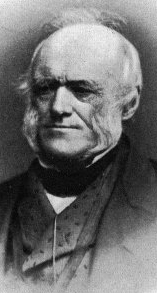
Evolutionists allege a long age for the earth because their model depends on it. They justify it only by misinterpreting and misconstruing both historical fact and natural observation. In fact, that is the history of how Darwinism became current and “credible.”
The first Long Age mistake: Egyptian chronology
Egyptian chronology is notorious for being inexact and subject to almost as many interpretations as interpreters. Heinrich Otten, in 1973, openly called Egyptian chronology a “rubber chronology,” that one could stretch to fit.
This problem has plagued Egyptian chronology since Roman, or even Greek, times. Manetho famously collected king lists, and organized these into thirty Dynasties. But: he assumed those Dynasties, and all the kings in them, reigned consecutively. The Rosetta Stone seemed to support the idea of consecutive reigns.
Naturally, if you tot up the lengths-of-reign of all the Pharaohs of Egypt, you get a history of the Egyptian state that stretches to 5700 BC and earlier. In contrast, James Ussher, Archbishop of Armagh and Primate of Ireland, calculated a year of creation at 4004 BC. (If the Sojourn of Israel in Egypt included all the 430 years of Galatians 3:17, the real year of creation would be 4219 BC.) And of course the Global Flood must have occurred more recently: 2349 BC, or no earlier than 2564 BC with a Long Sojourn.
The basic Long Age mistake: uniformitarianism.
This construction on Egyptian chronology lent support to an argument by James Hutton that the Global Flood was a folk myth, and the earth was far older. And a certain lawyer named Charles Lyell used this fear, uncertainty and doubt about creation to propose a new view of geology. Before Lyell, most geologists accepted catastrophism, the notion that catastrophic events produced the geological formations known then (and found since). Lyell proposed uniformitarianism: the idea that processes working today, have always worked, and at the same rate, since time immemorial.
One cannot exaggerate how important Charles Lyell’s influence would be. Without Lyell, there would have been no Darwin. Darwin himself admitted this; he explicitly credited Lyell with valuable insights that informed his own work.
Even the late Stephen J. Gould, evolutionist that he is, was not entirely comfortable with uniformitarianism:
Lyell’s gradualism has acted as a set of blinders, channeling hypotheses in one direction among a wide range of plausible alternatives. Its restrictive effects have been particularly severe for those geologists who succumb to Lyell’s rhetorical device and believe that gradual change is preferable (or even required) a priori, because different meanings of uniformity are necessary postulates of method. Again and again in the history of geology after Lyell, we note reasonable hypotheses of catastrophic change, rejected out of hand by a false logic that brands them unscientific in principle.
For once, Gould was right. “The present is the key to the past,” say Lyell’s professional and spiritual descendants.
Uniformitarianism suggests that the deeper you dig, the further back in time you go. All one need do is measure the rate of erosion by a small trickle of water, and use that rate to convert a depth into a time, typically for billions of years. In fact, Lyell and his immediate successors saw no reason to suppose that the earth was not infinitely old, hence eternal.
Evolution needs a long age – a very long age. Charles Lyell offered an ageless earth.
Radioactivity sets a limit on a long age
Then came Henri Becquerel, his associate Pierre Curie, and their student, Marja Sklodowska, known to history as Marie Curie. They discovered radioactivity. And that would set a limit even on a long age.
Certain elements (including every element heavier than lead) decay over time. This is the only known natural example of transmutation – an element changing into something else. Many radioactive elements change into other elements – but slowly. Very slowly.
Result: the earth could not be infinitely old. But the earth could still have a long age. The successors to M. Becquerel and the Curies suggested a way to “date” a rock:
-
Measure the amount of a radioactive element (the parent or mother nuclide), and the element it eventually changes into (the daughter nuclide), in the rock.
-
Make a good case for what the proportion of these elements must have been when the rock formed.
-
Look up the half-life of the radioactive element – the number of years it takes for half the element to decay.
By these methods, most geologists now accept 4.5 billion years as the age of the earth.
Of course, this kind of method assumes three things:
-
We always can know how much “daughter nuclide” was in a rock when it formed. The usual assumption is: zero.
-
We can be sure that nothing adds to, or takes away from, the amount of mother or daughter nuclide except radioactive decay.
-
Radioactive decay rates never change. Today, most physicists modify that, to say: the average rate of decay in the course of a year never changes from year to year. (We now know that radioactive decay rates do change with the seasons. Radioactive substances decay slightly faster in winter [Northern Hemisphere] than in summer. This has nothing to do with temperature, and everything to do with how close the earth is to the sun.)
These three assumptions let geologists smugly assume a long age.
The Hubble, or Copernican, Principle
The astronomer Edwin Hubble, for whom the United States named a telescope, coined a principle of astronomy (the laws of the stars) and cosmology (the study of the sky). He said the sky will always look the same to you no matter where you stand, or what world you stand on, or what star that world orbits. Whether you stand on earth or on a world in orbit around a star as far away as our telescopes can see, the view is the same.
Hubble called this the Copernican Principle, after Nicholas Copernicus. Actually, Copernicus never said any such thing. So one should call this the Hubble Principle, after the man who coined it.
This implies that nothing is special about our earth, or where it rests. Indeed, Hubble expressed horror at the very thought that the earth might have a special place in the sky.
The common thread
The common thread in all these arguments – a long age, and a universe without an objective center – is: there is no God, nor anything special about human kind. And if the things that Edwin Hubble actually said are at all typical, this was deliberate and calculated. We have little evidence to charge Henri Becquerel or the Curies with this attitude. But Charles Lyell’s and Edwin Hubble’s own words convict them.
For a century and a half, the Long Age view of the history of the earth has prevailed. But now the Long Age view is coming under challenge.
Related:
Creation: Important to Christians
[subscribe2]
Terry A. Hurlbut has been a student of politics, philosophy, and science for more than 35 years. He is a graduate of Yale College and has served as a physician-level laboratory administrator in a 250-bed community hospital. He also is a serious student of the Bible, is conversant in its two primary original languages, and has followed the creation-science movement closely since 1993.
-

 Education3 days ago
Education3 days ago‘Grading for Equity’: Promoting Students by Banning Grades of Zero and Leaving No Class Cut-Ups Behind
-

 Civilization5 days ago
Civilization5 days agoEarth Day Should Celebrate U.S. Progress & Innovation
-
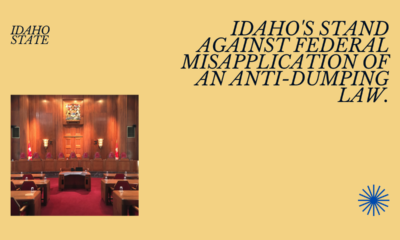
 Family2 days ago
Family2 days agoIdaho defends against abortion mandate
-
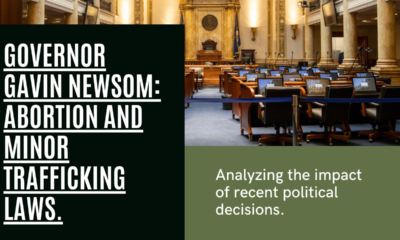
 Civilization4 days ago
Civilization4 days agoNewsom plays silly abortion politics
-
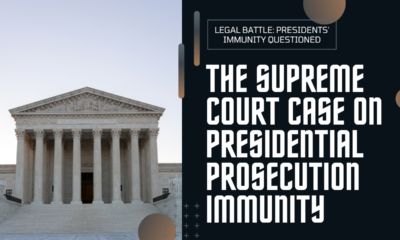
 Constitution1 day ago
Constitution1 day agoPresidential immunity question goes to SCOTUS
-

 Education5 days ago
Education5 days agoThe Intifada Comes to America. Now What?
-

 Civilization5 days ago
Civilization5 days agoEarth Day – part of cultural Marxism
-

 Civilization4 days ago
Civilization4 days agoWaste of the Day: China Still Owes Over $1 Trillion to American Bondholders


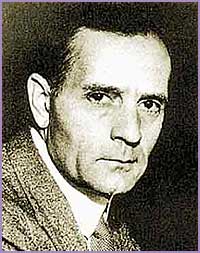














[…] Reprinted from Conservative News and Views […]
Michael Alan Kline Sr liked this on Facebook.
[…] Long Age: Misinterpretation of Evidence | Conservative News and Views. […]
I think the title is keenly appropriate in that it includes the word “misinterpretation.”
Certainly God could create a young or an old universe; His power is that great. But it troubles me that Christians create trouble where there is none. Instead of looking at the possibility that their own interpretations might be wrong, they blame others. The Bible continues to hold Truth, but interpretation is not equivalent to that Truth, there being so many conflicting interpretations of scripture.
It’s almost as if some Christians have forgotten what humility is all about. And that’s a troubling development. What if a wrong interpretation leads the flock astray and away from following Christ? Just because some leader says the Bible is inerrant, doesn’t automatically make their interpretation of scripture inerrant. The power of authority by “association” has long been misused and abused by the Master of this World, ego.
Could God have created the universe to “fool” humans into thinking it was much older than it really is? Why would He do that? To teach us humility, perhaps? By the same token, couldn’t the Bible have been written with a great deal of hidden wisdom for the same purpose? But that would mean that the readers of the Bible would actually have to work to understand what was written. They would have to become humble in order to let God give them the meaning.
If humility (subduing ego) is so important, wouldn’t you think the writers of the Bible would include a great deal of hidden wisdom in order to elicit that divine quality?
This writer says, “Evolutionists allege a long age for the earth,” but the age of Earth has nothing to do with “evolution.” Here, “evolutionist” is a catch phrase of divisiveness — to separate us from the evil secularists. That’s not a message of love, but of separateness or ego. Shouldn’t we be mending the distance between us? And what if the scientists are right? What if the Bible agrees with them and not those who condemn the secularists?
There are galaxies out there that are millions of years beyond the point of initial collision. Their guts are strewn across several quadrillion miles of space. Galaxies are huge beyond most people’s comprehension. If anyone were to take the fastest jet plane, they could not cover an equivalent distance in even millions of years. It would take them many trillions of years to cover such an awesome distance.
Would God create the aftermath of collisions that never had occurred? Somehow, I don’t think God would do that. There are plenty of other ways to elicit the desirable trait of humility.
And Genesis really does have a timeline compatible with those of science.